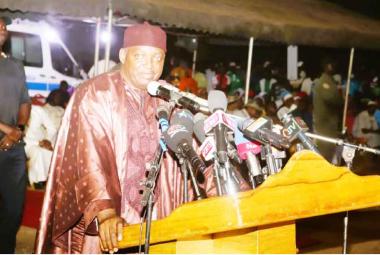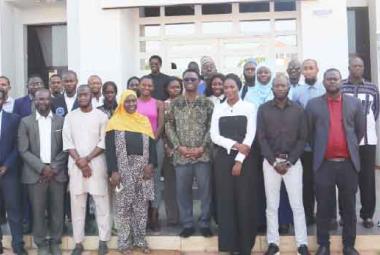By Adam Nyang
Climate change has been affecting the world at large in various ways. There have been increased droughts, more severe storms, warming and rising sea levels to name just a few. However, the focus of this article is mainly the intersection between climate change and gender in The Gambia. In what ways does climate change affect women and their livelihoods?
Modou Lamin Conteh, works at the Department of Fisheries under the Ministry of Fisheries as a Fisheries Field Assistant. His work requires him to train women on the fisheries value chain on improved techniques and fish handling methods as well give more value to their products.
In an interview, Mr Conteh described the contribution of women in the food value chain particularly the fisheries sector as vital.
“Thousands of women have been working in the fishing industry throughout history and across nations. Their roles differ across fishing industries, communities, countries, and regions. However, most women devote their efforts, talents, and skills to the well-being of the family through their engagement in the fishing industry. Women play a great role in subsistence and small-scale fishery production, mostly in the primary production systems,” he stated.
When asked about how climate change affects the women he works with, the Fisheries field assistant said climate change threatens fish stocks, as it changes the distribution of fish stocks and alters the structure of ecosystems, leading to shortage of fish. “As a result, the catch landing of fish is very low which affects the women working in the fisheries value chain. The price of fish will be expensive, and women in the value chain will not be able to buy it for processing for dried fish and smoking”.
The other point he raised was that erosion is another effect of climate change that affects women in the fisheries sector. Due to the increase in sea level and washing away of the topsoil by erosion, so much destruction in landing sites along the coast has happened. Structures at the landing sites such as stores and smokehouses are not resilient to climate change; these structures have been either washed away or destructed by erosion. As a result of these, women in the fisheries value chain do not have storage facilities, fish drying racks and smokehouses to process and store their products.
Mr Conteh went on to give a series of solutions that could help combat the effects of climate change. The first one he talked about was the promotion of aquaculture. Apparently, the open ocean aquaculture approach reduces the environmental effects of fish farming. It helps maintain water quality and the biological balance of coastal ecosystems by placing farms away from essential coastal zones. This will help combat the effects of climate change that currently threaten the fish stocks and alter the ecosystem structure. The other solutions he stated include the sensitization & promotion of the use of improved fish smoking ovens and fish driers technologies. There’s also tree planting at the landing sites to prevent the top soil from being washed away by erosion and lastly, fish solar driers technology so that the fog caused by climate change would not have any impact on products. The solar system would dry the fish.







